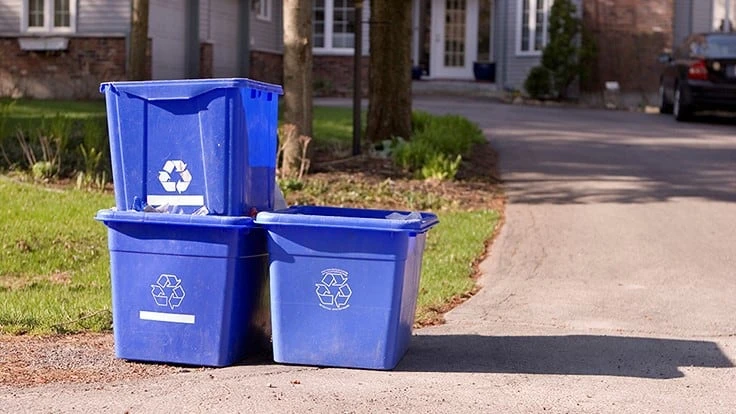
(c) ImageegamI | istockphoto.com
The Product Stewardship Institute (PSI), Boston, has released a report that provides guidance for stabilizing and modernizing fragmented U.S. municipal recycling systems that have been strained by major market disruptions. The report outlines problems faced by U.S. recycling programs and how extended producer responsibility (EPR) programs in four Canadian provinces have increased packaging recovery and recycling, reduced contamination and developed markets for difficult-to-recycle materials. It also provides a detailed case study on the packaging EPR program in British Columbia, which is North America's first full producer responsibility program for packaging.
The report, “Extended Producer Responsibility (EPR) for Packaging and Paper Products (PPP): Policies, Practices, and Performance,” was funded by the Metro regional government in Oregon. It outlines key elements of EPR for packaging and paper products (PPP) and how they contribute to program success. The report shows that EPR not only provides sustainable financing for recycling by placing financial responsibility for the system on producers, it also can shift the burden of day-to-day recycling management away from the public sector, allowing limited public resources to be redirected toward other priorities, PSI says.
"Our goal is to offer reliable information on high-performing EPR programs for materials that are traditionally accepted by residential recycling programs," says Scott Cassel, PSI founder and CEO. "EPR programs provide proven options for U.S. governments desperate for recycling solutions."
The most successful programs to date, according to the report, place full responsibility on producers to achieve results but also provide local governments with the option to continue collecting recyclables and educating residents. One of the most transformative benefits of existing EPR programs is the standardization of collected materials across jurisdictions, reducing resident confusion and contamination, PSI says. In Europe, where EPR has been established for decades, many countries report PPP recycling rates above 70 percent or 80 percent, which compares to the current U.S. recycling rate of 50 percent for this material, PSI says.
EPR-driven systems also weather the effects of the "China Sword" and other export restrictions better than U.S. systems, the organization says. For example, while recycling costs in some U.S. regions increased by as much as 200 percent in the last year, costs to producers in British Columbia’s EPR system grew just 26 percent, despite the large decrease in the value of materials. This was in part because Recycle BC, the industry-run organization that manages the program, focused on building local recycling markets, PSI says.
"Metro commissioned this study because of the ongoing challenges related to managing packaging and paper waste, including recycling market disruptions," says Kristin Aldred Cheek, PSI's director of policy and programs. "This report will be a vital tool as they assess options for modernizing the recycling system."
The PSI report highlights several trends. For example, while producers in all programs pay variable (or modulated) fees based on the weight and recycling cost of materials, many programs are beginning to incorporate eco-modulated fees that incentivize producers to reduce the impacts of their packaging by using more reusable or recyclable materials, and to consider greenhouse gas emissions and other environmental factors. In addition, in the British Columbia program, producers considered the needs of small haulers and processors in the system design.
The report notes that EPR programs can help companies achieve their recycled content goals by providing a consistent supply of high-quality recycled materials. It also emphasizes the importance of striking the right balance between government and industry roles by ensuring public oversight while allowing producer flexibility in implementing a program. Experience has shown that more successful programs have a proper balance between government and producer interests and address the interests of waste management companies, environmental groups and other key stakeholders, PSI says.
Latest from Waste Today
- EC Waste acquires fellow Puerto Rican hauling firm
- Goldman Sachs Alternatives to acquire Liquid Environmental Solutions
- Block Island Recycling Management Inc. aims to promote environmental stewardship
- Miami region officials seek WTE plant location
- Clean Harbors faces potential penalty for Ohio fatality
- New Hampshire governor signs leachate management bill
- MSS relocates to new facility in Nashville, Tennessee
- Houston weighs adding a solid waste fee





